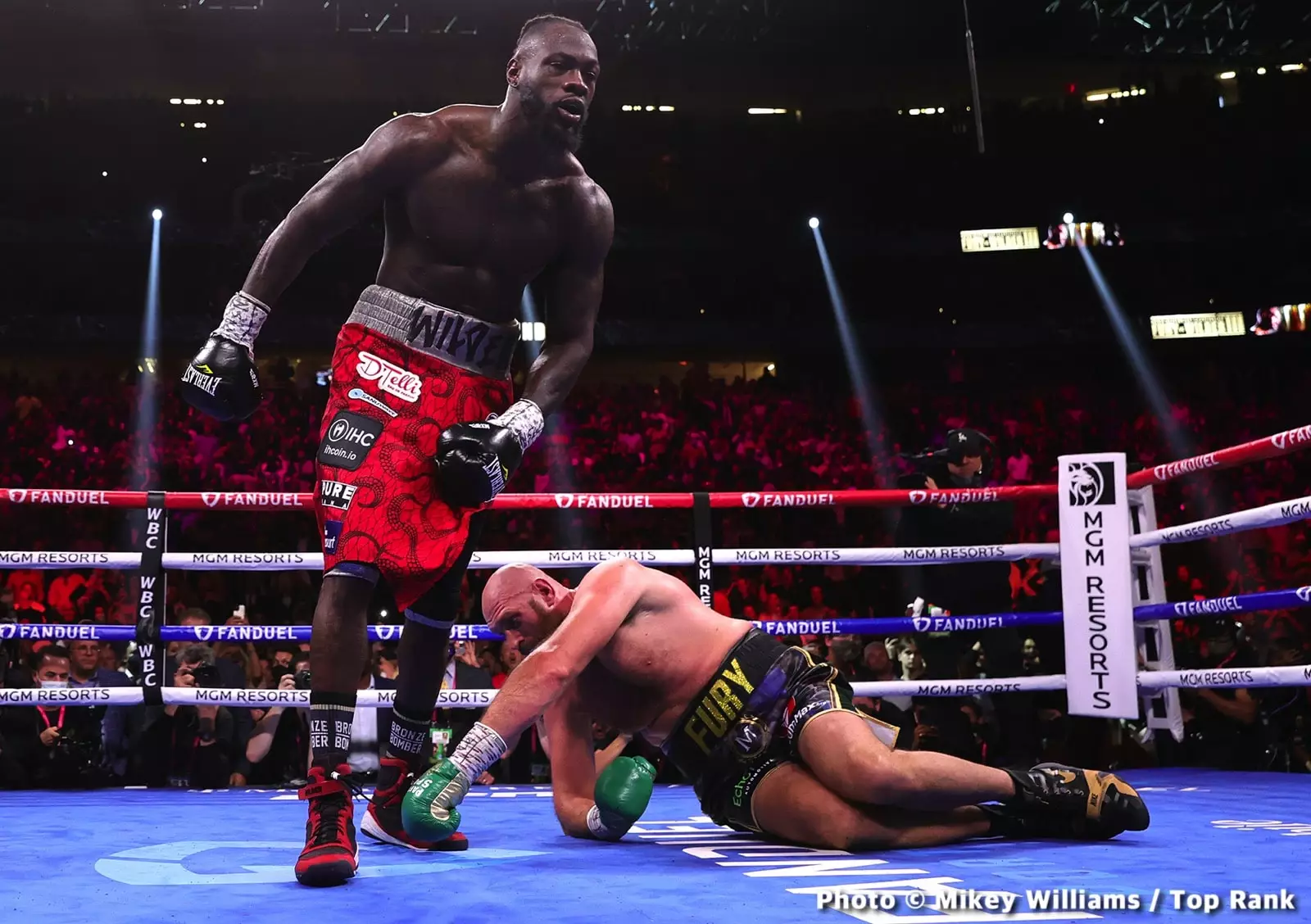Tyson Fury is one of boxing’s most charismatic and controversial figures, his bravado often overshadowing significant nuances of his career. As he gears up for his highly anticipated rematch against Oleksandr Usyk, questions about his toughest opponents have resurfaced, revealing more than just his thoughts on individual fighters. This article explores Fury’s response regarding his most difficult adversary and the implications that decision has on his legacy in the sport.
When asked to identify the hardest opponent he has faced, many expected Fury to mention Usyk, given their past encounter where Usyk handed him his first professional defeat. Instead, Fury chose Deontay Wilder, a fighter famed for his devastating punching power. This choice speaks volumes—not just about Wilder’s raw physicality, but also about the narrative Fury has built around his career. “Wilder was in his prime, a dynamite puncher,” Fury remarked, emphasizing the constant threat he posed in the ring. This highlights a fundamental aspect of Fury’s psyche as a fighter: the idea that fear can be a great motivator.
The psychological warfare foundational to professional boxing plays a critical role in how fighters perceive their opponents. Fury’s choice of Wilder over Usyk suggests that he acknowledges the sheer, terrifying potential of a knockout punch—a primal fear that transcends the technical nuances of boxing. This acknowledgment signifies a deep respect, perhaps even admiration, for Wilder as a formidable foe who tested Fury’s resilience like no other.
While Wilder’s knockout power is beyond question, the conversation shifts when evaluating the competencies of Fury’s other opponents, especially Usyk. Critics have often argued that Wilder, despite his power, lacked the comprehensive skill set that defines elite boxing. Where Wilder was an explosive threat, Usyk represents a more rounded approach to fighting, employing strategy, footwork, and ring IQ that often leaves opponents guessing. Fury’s recognition of Wilder could inadvertently indicate insecurity about his capabilities against fighters who can match him not only in size but also in technical mastery.
The paradox lies in the notion that, while Fury admires Wilder for his capacity to end fights abruptly, a victory over Usyk would undoubtedly solidify his legacy as one of the all-time greats—a counterintuitive statement that underscores the nature of what fighters value as significant in their careers. For Fury to claim Wilder as his toughest opponent may suggest he’s grappling with what it truly means to be considered ‘great’ in boxing’s storied history.
As Fury prepares for a rematch with Usyk on December 21, 2023, the significance of this encounter extends beyond the personal. It’s a chance for Fury to not only achieve revenge but also to redefine his legacy against a fighter who, in some respects, comprehensively outclassed him in their last match. The boxing world remembers how Usyk dictated the pace of that fight, leaving Fury fighting on the back foot, a scenario that may haunt him as he prepares for their next bout.
Fury departed their last encounter with an altered self-perception; while he remains confident, deep down, he must recognize the danger that Usyk embodies. Historically, boxers often wrestle with the emotional residue of defeat, and for Fury, acknowledging Usyk’s capabilities—specifically how Usyk outmaneuvered and outsmarted him—could be a transformative experience.
As Fury gears up for what many consider an orthodox contest, the psychological stakes are still high. How he perceives Usyk—speaker of respect or denier of skill—will shape the narrative going into the rematch. Will he enter the ring fully aware of Usyk’s tactical acuity, or will he cling to the simplicity of Wilder’s brute strength as a benchmark for toughness?
Fury’s introspection—or lack thereof—could directly influence his ability to adapt and thrive against Usyk’s style. As fans await the conclusion of this high-stakes clash, one thing is for sure: the outcome will likely echo beyond the immediate result, possibly reshaping Tyson Fury’s narrative and reinforcing or rewriting his standing in the crowded annals of heavyweight boxing history. This rematch may very well answer the unresolved questions that have lingered since their first encounter, potentially shedding light on Fury’s true measure as a fighter.

